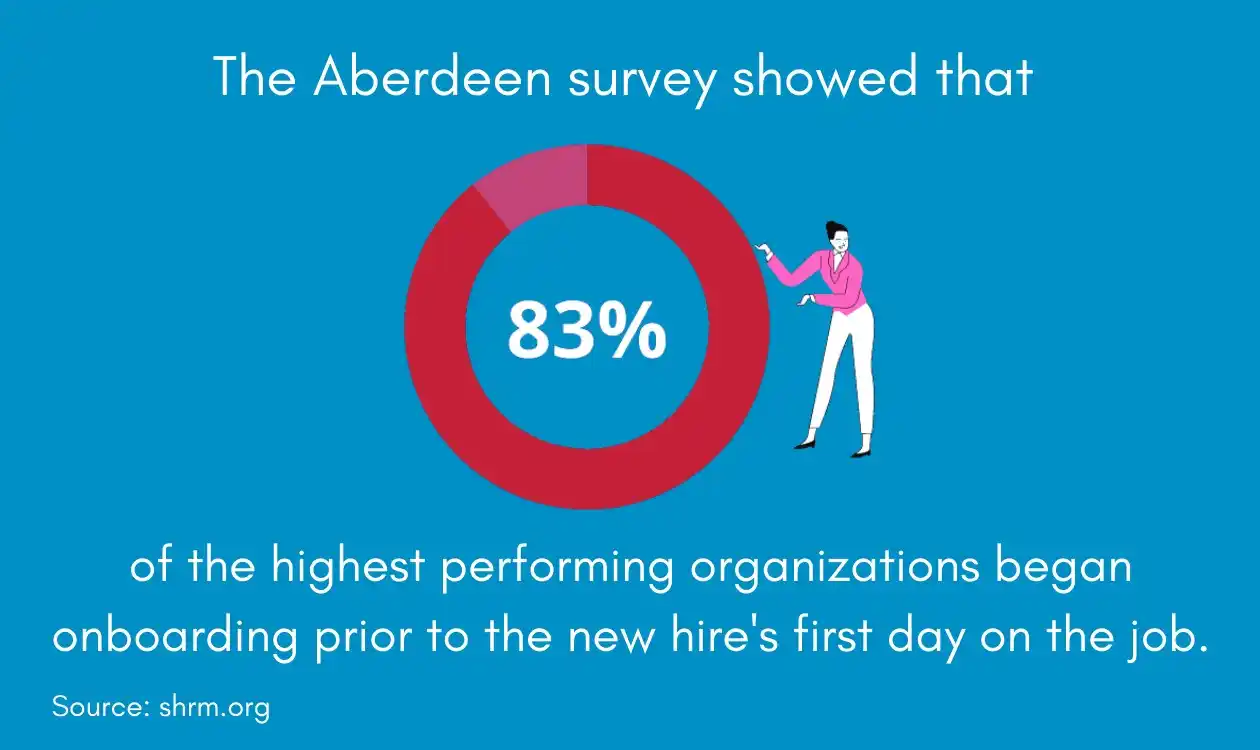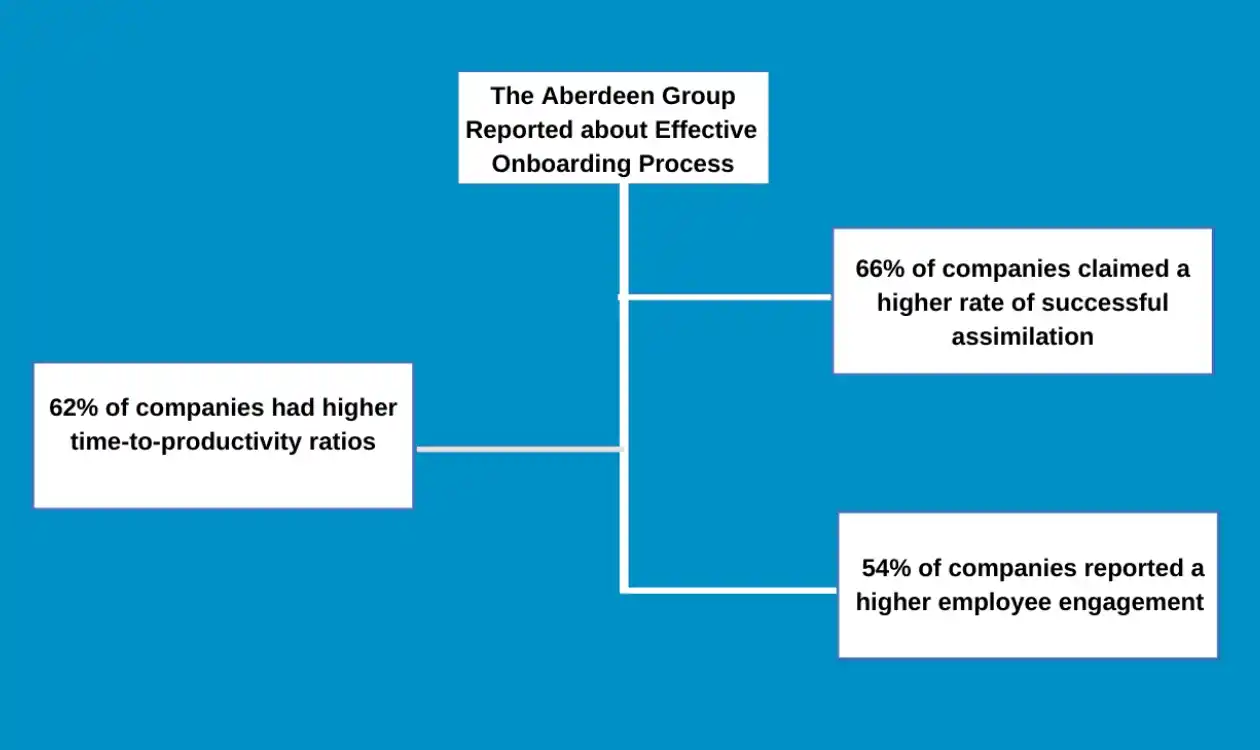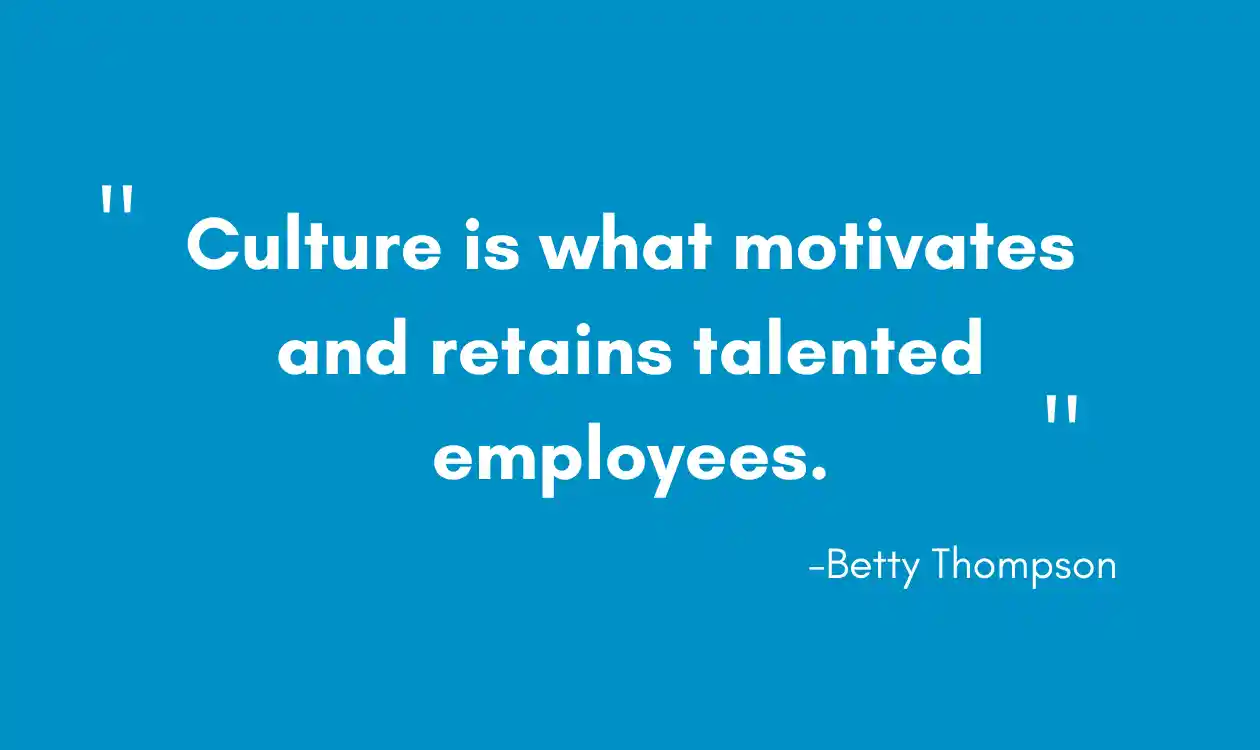TL;DR
- The onboarding process is essential for integrating new employees into the company culture and improving their productivity.
- Effective onboarding increases employee retention, productivity, and business growth.
- Company culture influences employee engagement, retention, and overall business success.
- A culture-based onboarding checklist includes teaching culture before the start date, providing detailed information, and making employees feel part of the team.
The onboarding process is now not a nice to have a thing...it has become a necessity. Want to onboard new employees to your company culture? And want to provide the best onboarding experience to the employee? Check out this blog to learn everything about company culture and the onboarding process.
Being a new employee in the workplace, surrounded by new people isn't simple. Put yourself in their shoes and you will identify the pressure of being a new someone in an environment where everybody knows one another and already shares a bond. Simple activities like finding the bathroom or coffee machine can all of a sudden become awkward.
When we hire new employees, we automatically accept them to grow into their jobs and the company. They are expected to be involved in all the activities that come along with their title, work with their colleagues that are involved in the project, but we often forget to consider the importance of the Onboarding process
Onboarding process helps the new employee to smoothly get settled in the company and some survey even suggests that the good onboarding process leads to a longer employment period. Onboarding is a major way to make the employee familiar with social filaments and the company culture.
What is Onboarding Process?
The onboarding process is the approach that allows new employees to know about the company; it's structure, vision, mission and values. Moreover, complete the initial process of the new hire.
The onboarding process is one to two days of activities. Through this the company integrates new employees into the organization, and makes them feel comfortable and involved. And mainly learn about company culture.

Many organizations fail to make the alignment between the new hire and the company culture. A study conducted by Aberdeen Group involving HR professionals and management teams estimated that 66% of companies announced higher accomplishment with assimilation to the company culture with a structured onboarding program. At the same time, approximately 90% of new hires counted as bad hires due to the poor culture attribute.
Why Onboarding Process is Important?
The onboarding process is identical to the first day of school and college where students feel anxiety and stress of interacting in the new world and people.
The involvement and interaction start with a simple handshake and hello. These handshakes and hello build the unseen relation between the two strangers who have never met before.
The onboarding process is an extended version of a handshake and hello. It is an icebreaker that constructs the relationship between the new employee and existing employees. The sooner new hires feel comfortable and involved in company culture, the faster they become productive, confident and ready to dive in their work.

Benefits of onboarding process
Here we have mentioned some benefits of a good and effective onboarding process. And that makes you believe why the onboarding process is crucial.
- Increase productivity:- The early new hire will understand what the company's need and vision is and how they can succeed and what components needed to become achiever - that quicker they can contribute toward the organization goals. Even according to the survey, companies with a successful onboarding process likely 62 per cent have higher productivity ratio.
- Improve retention rate:- As we heard, the first impression is the last impression. And it's no different when it comes to the onboarding process. Up to 20 per cent of new hires leave the organization within 45 days. Through an effective onboarding process, employers can effortlessly influence this factor. According to the research by Glassdoor, a good onboarding process improves the retention of new hires up to by 82 per cent.
- Boost business growth:- A good onboarding process sets a dedicated team instantly by forming relationships amongst the new hires and existing employees. Consequently, the collaboration and interaction between the employees become higher and transparent. The higher engagement of employees gives a higher rate of profitability.
The new hire with bad onboarding experience leaves the organization earlier. Thus, potential employees who feel disinterested and uninvolved in the company culture will not be willing to stay longer.
Absence of the onboarding process in the recruitment life cycle will undoubtedly affect the productivity rate of new hires, also of team and supervisor.
Onboarding Process Checklist
The onboarding process checklist is the best way to handle the challenges during the process. The checklist provides you with steps that you should follow to make the best practice of the onboarding process.
So, here are three things to remember while making an Onboarding program:
Do not start the onboarding process without preparation
You may discover there are bits of your present Onboarding program that do not function well, however you continue repeating to make them work. On the off chance that you make an opportunity to use it again, you may discover there is a greater issue. Possibly it's essentially not addressing your needs or it doesn't work for where you are as a company any longer. So, before you start your Onboarding process make sure it meets your companies' requirements and doesn't go into the process without prior preparation.
Onboarding is a group activity
The upfront investment and backing of supervisors, colleagues, and others who engaged with your new employee's everyday experience matter a lot. So, the Onboarding process when undertaken as a group will improve things greatly in having the option to pull off the experience you need to convey. Empowering others to take part all the while and play a greater job in Onboarding makes for a more improved and by and large progressively versatile Onboarding process.
Survey your assets
You need assets both as far as cash and individuals' time, just as spreading out your difficulties. The extent of the program should develop as you develop and should have the ability to have more individuals engaged.
You should try not to anticipate that new employees would right away start working at the max throttle and don't anticipate that the new manager should begin overseeing without understanding the way of work-life in your company. Give new employees a chance to evaluate different groups and people to perceive how they are extraordinary.
Give them time and chances to create associations with their colleagues in the company. This sentiment of involvement, beginning from little successes and objectives that get greater and increasingly significant as they go, constructs their certainty and social information. It gives them a chance to manufacture their thoughts and work without any pressure and they come out with flying colors in their work and convey results.
What is Company Culture?
Company culture is the made up of the set value, goals, vision, mission and attitude that defines the organization's character. It broadly refers to the way employees interact with each other and the outer world, their attitude toward the work, goals and mission.

Importance of Company Culture
Company culture is more than just a vibe of the office. The impact of company culture is visible to each stage of the recruitment process, whether it is about attracting the top talent, or onboard them. Besides, hiring process company culture impacts each facet of the business.
Statistics about company culture which show its importance
- 66% of job seekers consider a company's culture and values the most important factor when considering career opportunities. (Source)
- Companies that actively manage their culture boast 40% higher employee retention. (Source)
- Organizations with strong cultures boast 72% higher employee engagement rates than those with weak cultures. (Source)
- Highly engaged teams outperform their peers by 10% in customer ratings, 21% in productivity and 22% in profitability. (Source)
- Unfortunately, only 13% of employees identify as being engaged with their work. (Source)
Hence, through good company culture, companies can attract the right talent for the open vacancy. And after attracting and grabbing the right talent, company culture creates an impact on new hires' performance. Good company culture emphasizes on employee engagement and improves the work quality.
Culture-Based Onboarding Process Checklist
Onboard new hires into the company culture mean making them feel comfortable in the company environment and knowing the work ethics and value. Understanding the company culture during the onboarding process makes many things easy for new hires like office timing, working hours, dress code, communication channel, benefits management, and so on.
According to the SHRM outline, three major points of the successful onboarding process: compliance, clarification, culture and connection. Culture and connection describe the relationship with organisation norm's, relationship with teammates and interpersonal relationship.
There is a strong connection between the onboarding process and company culture. As a result, we have created a checklist of the culture-based onboarding process. And here we go….
Teach culture before the start date
Once you have chosen the potential candidate for the position, from that point, you should have to start teaching them about the company culture. Lessons about company culture should be glimpsed into the offer letter.
- The offer letter should be professional and well-formatted, according to the type of industry.
- It must be individualised for each candidate.
- In the communication share about the joining date and address any question and concern.
- Utilise new packets for the new hires so that all the paperwork they can complete before the joining date. So, they can give more time to supreme activities on the first day.
- Provide information about the company culture such as mission, vision and organisational goals.
Teach by providing detailed information
New hires' first day should be well spent on knowing the company and job integration. The company side's initial and significant component is to train the employee and apprise them with the organisation's clear expectation.
- Teach the new hire about the definition of the company mission.
- Teach the new hire about the definition of company vision and goals.
- Teach the new hires about the company values. And how they use company values on a daily basis.
- Tell them company stories from the perspective of different employees.
- Discuss the failures and successes of the organisations. And lessons learned from it.
Ensure that employee feel part of the team
According to the research, 91 per cent of employees who went through the good onboarding process are more likely to feel connected. Thus, for improving the onboarding process, drag into the friendly culture, which makes them feel comfortable and free.
- Ask questions to the new hires in order to know their interest and personality.
- Take them out for lunch with the whole team.
- Take one to one meetings with new hires and explain a clear picture of the organisation.
Final Thought about Onboarding Process and Company Culture
You shouldn't fear to put resources into the best possible Onboarding, particularly when you are looking for your employees to have crucial qualities, and need to remain adjusted in any situation, during quick development.
Shortening Onboarding appears to be a fast success, yet it's a long haul mistake. Put resources in an Onboarding process for your new employees, and it will deliver profits for a considerable length of time.
FAQs - Frequently Asked Questions
What is the onboarding process and why is it important?
The onboarding process helps new employees adapt to the company's culture and work environment smoothly. It improves productivity, retention, and builds strong relationships within the team, which benefits both the employee and employer.
How does company culture impact employee performance?
Company culture shapes how employees interact and feel about their work. A positive culture increases engagement, satisfaction, and productivity. When new hires align with the culture, they perform better and stay longer.
What are some key points in a culture-based onboarding process?
Important steps include teaching the company culture before the start date, providing detailed information on mission and values, and ensuring employees feel part of the team. These create comfort and confidence for new hires.
How can iSmartRecruit assist in onboarding?
iSmartRecruit offers tools for smooth onboarding and recruitment processes. It helps manage tasks efficiently, ensuring new employees receive a consistent and engaging experience aligned with your company culture.













.webp)


